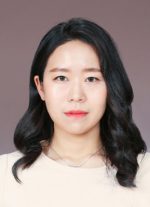Poster title
1/ A Case report of Guillain-Barré Syndrome Treated with Korean Medicine : Efficacy of Acupuncture, Bee Venom Acupuncture, and Herbal Medicine
2/ Non-Surgical Management of Gallstones with Korean Medicine : Using Injinoryung-san and Acupuncture – ACase Report
Presentation summary
1/ Introduction :
Guillain-Barré Syndrome (GBS) is characterized by acute ascending paralysis, typically beginning in the lower limbs. Early intervention with treatments such as intravenous immunoglobulin (IVIg) or plasmapheresis can significantly improve recovery outcomes. Delays in diagnosis or treatment, especially in elderly patients with comorbidities like diabetes, or severe symptoms, may lead to mortality or long-term sequelae.
Methods :
A 67-year-old female with a history of hypertension and diabetes was initially diagnosed with acute transverse myelitis following the onset of quadriparesis. Approximately 40 days later, she was correctly diagnosed with GBS but missed the opportunity for early treatment. Subsequently, she recieved Korean medicine treatments, including acupuncture, bee venom acupuncture, and herbal medicine. Acupuncture was administered tobilateral brachioradialis, extensor digitorum communis, quadriceps femoris, and tibialis anterior muscles. Bee venom acupuncture (BVA) was applied at LI4, ST36, and LR3. Muscle strength was assessed using theManual Muscle Test (MMT), and sensory symptoms were evaluated using the Numeric Rating Scale (NRS).This case report was approved by the Institutional Review Board (IRB) of OO University Hospital (SJIRB-Human-23-003).
Results :
Upon admission, the patient’s upper limb MMT scores were 3 bilaterally. By discharge, scores improved to 4. Lower limb MMT scores were 2 bilaterally at admission, indicating inability to walk ; by discharge, scores improved to 4, enabling independent ambulation. Sensory symptoms decreased from NRS 7 in both handsand feet to NRS 2 in the hands and NRS 0 in the feet. No adverse effects were reported during the treatment.
Conclusion :
This case suggests Korean medicine may be beneficial for GBS patients, especially considering the fact thatBVA has been reported to improve motor function and reduce motor neuron death in animal model. But furtherstudies are needed to validate our findings.
2/ Introduction :
Gallstones form when excess bile components crystallize. Symptoms range from asymptomatic to severe abdominal pain due to acute cholecystitis. While severe cases typically require cholecystectomy, management of asymptomatic or dyspeptic patients remains controversial, especially considering the risk of biliary injuries associated with endoscopic retrograde cholangiopancreatography (ERCP) or surgery.
Method :
A 60-year-old female patient presented with stomachache, nausea, and heartburn. Imaging revealed twogallstones : one in the gallbladder and one in the distal common bile duct (CBD) or ampulla of Vater. Laboratory tests showed elevated AST (126 U/L), ALT (257 U/L), and ALP (790 U/L). Treatment involved acupuncture at CV 12, GB 34, ST 36, SP 4, LR 3, and LI 4, and administration of herbal medicines, including Jeongjeongamiyijintang and Injinoryung-san. Written informed consent was obtained from the patient for the Results
After 11 days of treatment, the patient’s symptoms resolved. AST decreased to 35 U/L, ALT to 86 U/L, and ALPto 584 U/L. CT showed resolution of the CBD stone, with only one gallbladder stone remaining. Gallbladderwall thickening and bile duct dilatation also resolved. Endoscopy and esophagogastroduodenoscopy confirmedno remaining stones in the gastrointestinal tract, including the CBD or ampulla of Vater.
Conclusion :
This case suggests that Korean medicine may be a viable option for patients who refuse surgery or are awaiting surgery or ERCP. While both acupuncture and herbal medicine were administered, the use ofInjinoryung-san may have specifically contributed to the reduction of biliary enzymes and resolution of bile ductdilatation due to its hepatobiliary and anti-inflammatory actions. However, as a single case report, this cannot establish definitive efficacy. Further case series and randomized controlled trials are needed to validate the effectiveness of acupuncture and herbal medicine in t…
Conflict of interest
No

andayoung3@naver.com
Korean Medicine Doctor at Hyundai Clinic
Board-certified Specialist in Korean Internal Medicine
Ph.D. in Korean Internal Medicine
Former Adjunct Professor, Department of Korean Medicine, Sangji University